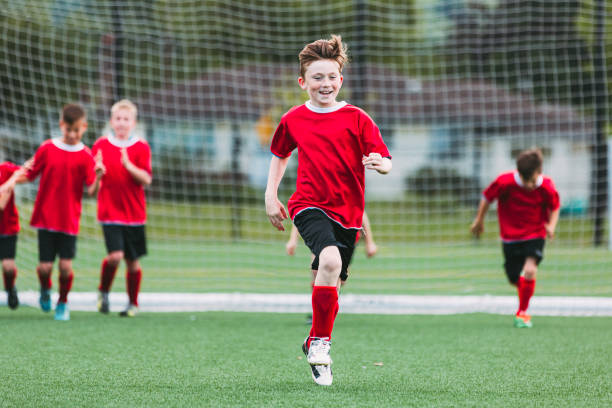Introduction
Youth sports development is more than just a pastime; it’s a crucial aspect of a child’s overall growth and well-being. In this guide, we’ll explore the importance of youth sports development, how it benefits young athletes, and the best practices for fostering a positive and successful sports experience. Whether you’re a parent, coach, or sports enthusiast, understanding the nuances of youth sports development is key to helping young athletes thrive.
What is Youth Sports Development?
YS development refers to the process of nurturing young athletes’ physical, mental, and social skills through organized sports activities. This involves not only teaching fundamental skills and techniques but also instilling values like teamwork, discipline, and sportsmanship.
The Importance of Youth Sports Development
YS development plays a vital role in a child’s life. It promotes physical fitness, teaches essential life skills, and fosters a sense of community. When children participate in sports, they learn how to set goals, work hard, and deal with both success and failure.
Benefits of Youth Sports Development
Physical Health and Fitness
Participating in sports helps children develop strength, coordination, and endurance.
Regular physical activity reduces the risk of obesity and related health issues.
Mental and Emotional Well-being
Sports provide an outlet for stress and help improve mood and mental health.
YS development encourages self-confidence and resilience.
Social Skills and Teamwork
Children learn to communicate effectively with peers and coaches.
Team sports teach the value of cooperation and respect for others.
Key Elements of Successful Youth Sports Development
To ensure successful youth sports development, several elements must be considered. These include the role of coaches, the support of parents, and the structure of the sports programs.
Role of Coaches in Youth Sports Development
Coaches play a pivotal role in YS development. They are not just instructors but also mentors who guide young athletes through their sports journey.
Creating a Positive Environment:Coaches should foster a supportive and encouraging atmosphere where children feel valued.
A positive environment helps young athletes enjoy the game and stay motivated.
Focus on Skill Development:Emphasize the importance of mastering fundamental skills before progressing to advanced techniques.
Encourage continuous improvement and celebrate small victories.
Building Character:Coaches should instill values like integrity, perseverance, and sportsmanship.
Teaching children to handle both victories and defeats gracefully is essential.
Parental Support in Youth Sports Development
Parents are crucial to the success of YS development. Their involvement and encouragement can significantly impact a child’s experience and growth in sports.
Providing Emotional Support:Parents should offer encouragement and praise regardless of the outcome of games.
Being present at practices and games shows children that their efforts are valued.
Balancing Expectations:It’s important for parents to maintain realistic expectations and not place undue pressure on their children.
The focus should be on enjoyment and personal growth rather than just winning.
Encouraging a Healthy Lifestyle:Promote healthy eating habits and ensure children get adequate rest and recovery.
Parents should model good sportsmanship and positive attitudes towards competition.
Best Practices for Youth Sports Development Programs
Effective YS development programs are well-structured and inclusive, catering to the diverse needs of young athletes.
Age-Appropriate Training
Focus on Fundamental Skills:For younger children, emphasize basic skills like running, jumping, and throwing.
As athletes grow, gradually introduce more complex skills and strategies.
Progressive Challenges:Tailor challenges to match the age and skill level of the athletes.
Ensure that activities are neither too easy nor too difficult to keep children engaged and motivated.
Inclusivity and Accessibility
Equal Opportunities:Ensure that all children, regardless of their skill level, have the opportunity to participate.
Programs should be designed to accommodate children with different abilities and backgrounds.
Affordable and Accessible Programs:Work towards making sports programs affordable and accessible to all children.
Consider offering scholarships or sliding scale fees for families in need.
Overcoming Challenges in Youth Sports Development
While YS development offers numerous benefits, it also presents challenges that need to be addressed.
Preventing Burnout in Young Athletes
Monitor Physical and Emotional Stress:Coaches and parents should be aware of the signs of burnout, such as fatigue, irritability, and lack of enthusiasm.
Encourage rest and recovery, and avoid over-scheduling activities.
Promote a Balanced Lifestyle:Ensure that sports do not overshadow other important aspects of a child’s life, such as academics and social interactions.
Promote a balanced approach that includes time for relaxation and other hobbies.
Addressing Competition Pressure
Emphasize Effort Over Results:Shift the focus from winning to putting in the best effort and enjoying the game.
Encourage children to set personal goals and celebrate their achievements, regardless of the scoreboard.
Educate About Healthy Competition:Teach children that competition is an opportunity for growth and learning, not just a contest to win.
Encourage a healthy perspective on competition, where both success and failure are part of the learning process.
Conclusion
YS development is an integral part of nurturing well-rounded, healthy, and confident individuals. By focusing on skill development, character building, and providing a supportive environment, we can ensure that young athletes not only excel in sports but also in life. Whether you’re a parent, coach, or community member, your role in YS development is crucial in shaping the future of young athletes.
FAQs
1. What is youth sports development?
YS development involves nurturing children’s physical, mental, and social skills through organized sports, emphasizing skill development, teamwork, and character building.
2. Why is youth sports development important?
It is important because it promotes physical fitness, mental well-being, social skills, and teaches valuable life lessons such as discipline, teamwork, and resilience.
3. How can parents support youth sports development?
Parents can support by providing emotional encouragement, balancing expectations, promoting a healthy lifestyle, and being involved in their child’s sports activities.
4. What are some common challenges in youth sports development?
Common challenges include preventing burnout, managing competition pressure, and ensuring that sports remain a positive and balanced part of a child’s life.
5. How can coaches contribute to effective youth sports development?
Coaches can contribute by creating a positive environment, focusing on skill development, building character, and ensuring that all children feel valued and motivated.
